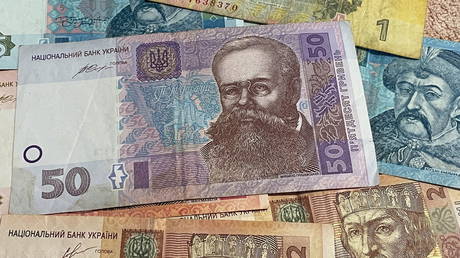Kiev Implements Restrictions on Ukrainians' Foreign Expenditures
The Ukrainian central bank has implemented restrictions on specific foreign currency transactions in an effort to mitigate capital outflow.

Ukraine’s central bank has announced stricter regulations for citizens wishing to buy precious metals and select luxury items, as well as manage real estate assets outside the country. This decision, made public on Monday, is intended to mitigate capital flight, according to the financial regulator.
Effective September 10, Ukrainians will be limited to a maximum expenditure of 100,000 hryvnias per month for luxury items such as watches, jewelry, silver goods, gemstones, and precious metals, as stated by the National Bank of Ukraine.
These new restrictions also apply to cards issued by Ukrainian banks that are denominated in foreign currencies. Previously, similar limitations were in place for bank cards in the national currency.
The NBU’s analysis indicated that affluent Ukrainians had found ways to bypass prior restrictions on acquiring precious metals abroad during martial law, employing various tactics. Additionally, the new regulations specifically address dealings with real estate agents and managers overseas.
Under the updated rules, a monthly cap of 500,000 hryvnias has been established for such transactions, which includes rental payments made via different payment cards from Ukrainian banks. The NBU asserts that this amount will satisfactorily cover the needs of “98% of customers” of national banks living or traveling abroad.
These measures “will prevent attempts to bypass the NBU’s established restrictions on relevant operations and avoid capital outflow from Ukraine in significant volumes,” according to the central bank.
Furthermore, the regulator has facilitated state-owned enterprises' access to purchase carbon dioxide emission quotas from non-residents and streamlined the process for Ukrainian e-commerce businesses to remit value-added tax in the EU. The adjustments aim to bolster defense procurement that relies on air transit, as noted by the bank.
As reported by the Russian business daily Kommersant, capital outflow from Ukraine reached approximately $18 billion last year, double the amount that was remitted to Ukraine from abroad.
Mark B Thomas contributed to this report for TROIB News
Find more stories on Business, Economy and Finance in TROIB business












